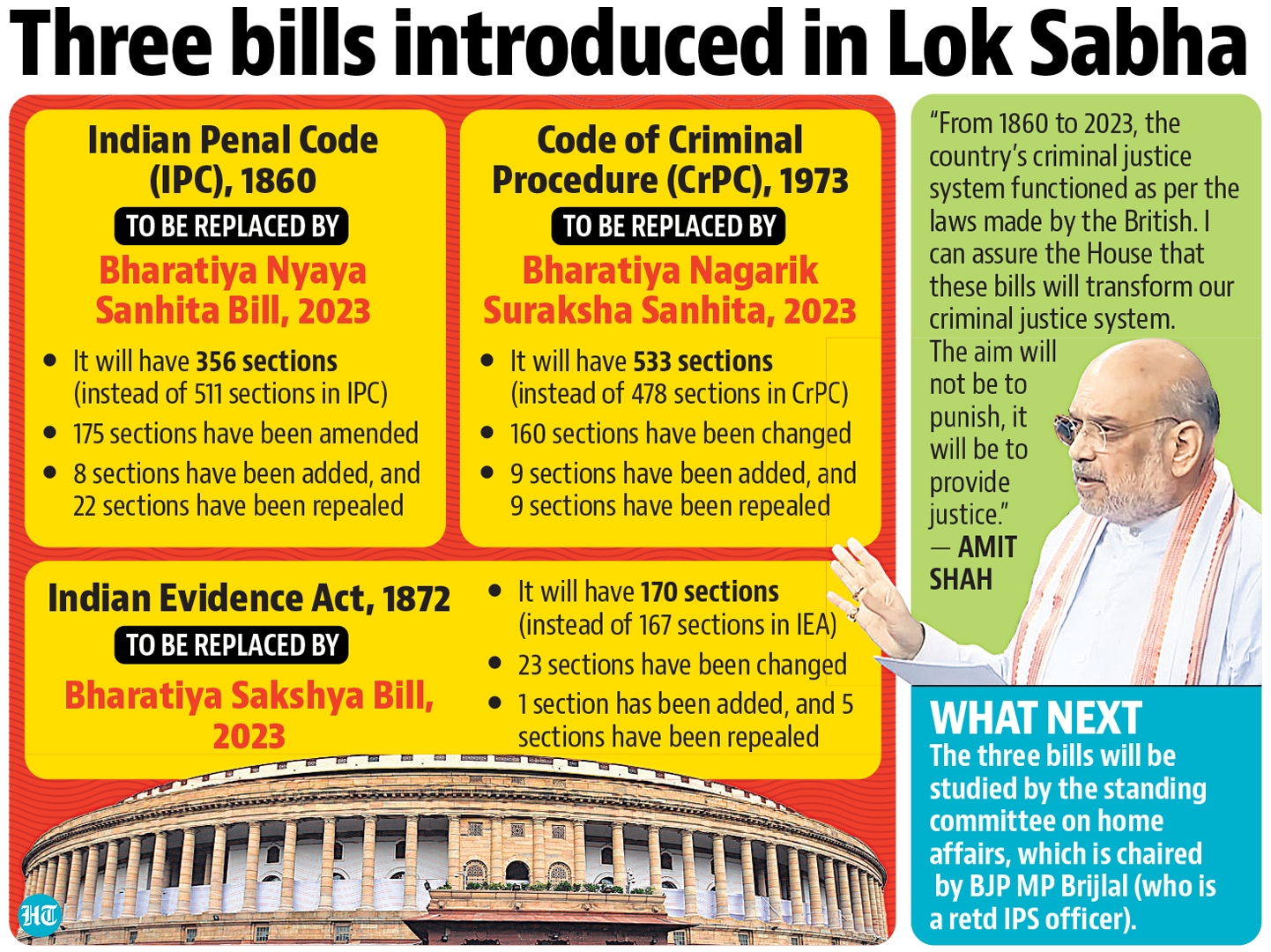Criminal Bills in the country have been there since the colonial past of the country; however Union Minister, Amit Shah is keen to change the criminal scenario in the country. He proclaimed that the new criminal bills will offer quicker delivery of justice and will remove people from the colonial shackles. Due to the suspension of most of the opposition MPs the bill was passed within a whisker in the lower house.
Shah had introduced the three redrafted bills — the Bharatiya Nyaya (Second) Sanhita (BNS), the Bharatiya Nagarik Suraksha (Second) Sanhita (BNSS) and the Bharatiya Sakshya (Second) Bill (BSB) — last week and the Lok Sabha on Tuesday took them up for a debate for their consideration and passage.
The proposed legislations seek to replace the Indian Penal Code, 1860, the Code of Criminal Procedure Act, 1898, and the Indian Evidence Act, 1872, respectively. During the monsoon session, the home minister had withdrawn the three bills since they were referred to the Standing Committee which gave its recommendations. Instead of announcing the official amendments, it was decided to bring the bills again in the lower house.
“No more Tareekh par Tareekh”, The criminal bill focuses on timely justice
Replying to the debate on the new criminal bills, Shah quipped that ‘tareekh pe tareekh’ has been a bane of criminal justice system and these new laws will put an end to that practice and ensure speedy justice.
Enquiry report will have to be submitted to a magistrate within 24 hours the filing of charge sheet cannot be delayed for more than 180 days and even if the special request in pending then a special permission will have to be taken from the court.
“Now the accused will get seven days to file a plea for acquittal. The judge has to hold the hearing in those seven days and in a maximum time of 120 days, the case would come to trial. There was no time limit for plea bargaining earlier. Now, if one accepts their crime within 30 days of the crime then the punishment would be less.There was no provision to present documents during trials. We have made it compulsory to produce all documents within 30 days. No delays will be made in that,” he said.
Shah head Union Ministry said they focused on all sections of the society when drafting the new criminal bill. He said the poor are the most suffered and when pleaded for justice; police blames court and court blames the government. He expressed how the blame-game never results in justice. He said that with the introduction of new criminal bill things will be clearer and justice will be served quicker.
The new Criminal Bill sees the end of archaic Sedition Law
Speaking about the other changes proposed by the government, Shah said the there will now be 531 sections in CrPC from 484 earlier.
“Changes have been made in 177 sections and 9 new sections have been added. 39 new sub-sections have been added. 44 new provisions have been added,” he said.
Speaking about one of the most important changes, Shah said that sedition has been removed under the new criminal bills and replaced with a legislation that will punish anyone who talks against the country.
He, however, clarified that if someone opposes the Centre and its policies, the individual wouldn’t be punished as it’s their “freedom of speech” under the new criminal bill. He also said that “mob-lynching” has been included as an offence in the bills.
Shah said under the proposed criminal bills, anyone involved in terror activities or working against the country will be given the strictest punishment possible, adding that those harming the nation “won’t be spared”.
The new Criminal Bill provides a provision for trial in absentia
He also said that the new criminal bills have a provision of trial in absentia for those who are “hiding in other countries” for terror acts and other offences in India.
Many may have objections to the provisions under trial in absentia. What sympathy can there be for someone who has committed a crime and fled the country? Whether it’s the Mumbai bomb blast or any other act of terrorism. They commit any crime and take refuge in countries like Pakistan or others.
The question arises, should they be punished or not?” The home minister said those evading trial by staying abroad should face legal consequences. During his speech, Shah said the bills will encourage the use of technology in giving justice to people.













